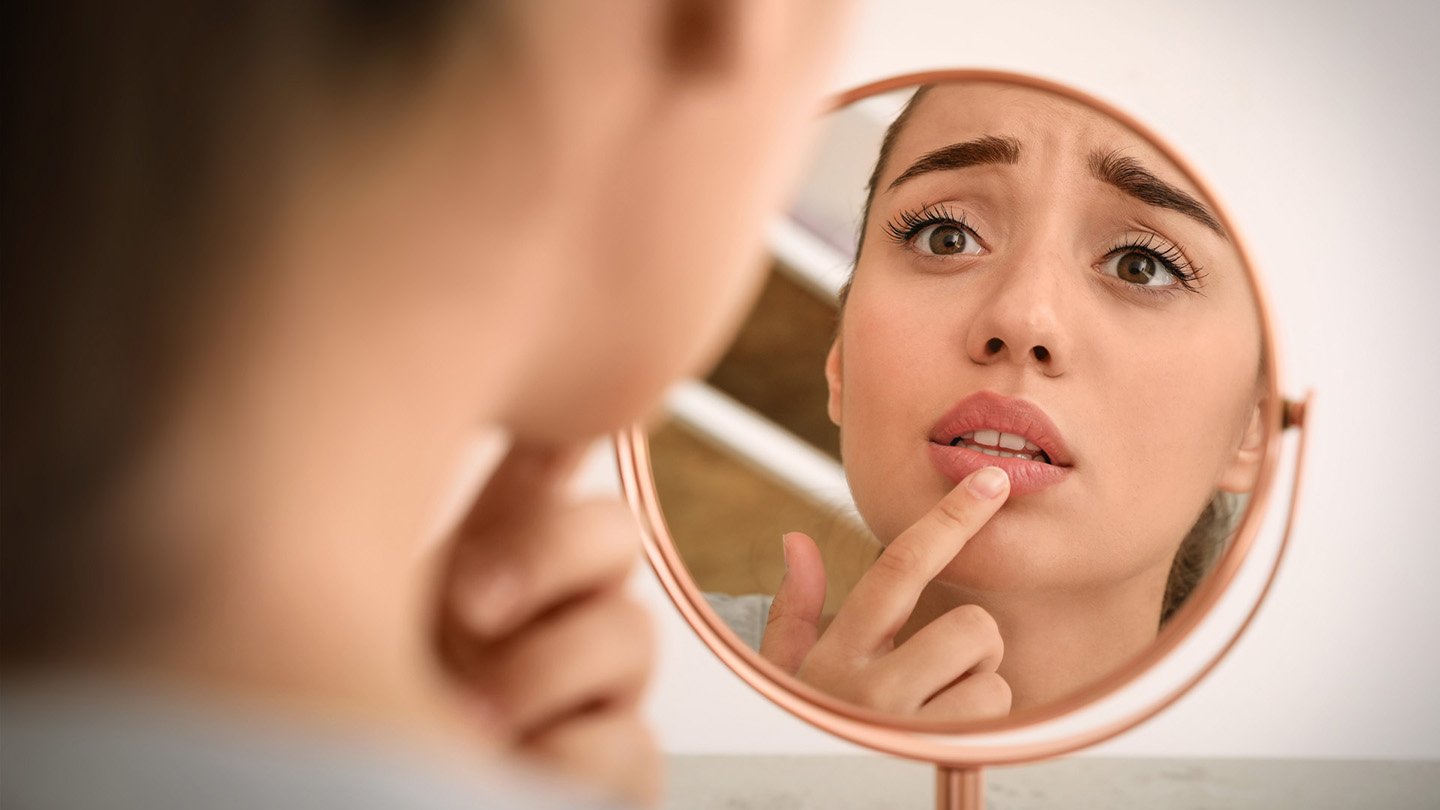Medical
A Dermatologist’s Guide to Healing Chapped Lips
It’s getting colder and there’s less moisture in the air, and we all know what that means—lips start to get dry, itchy and cracked. Chapped lips are extremely common during winter months but with a little attention and care—they don’t have to be.

Very few skin-related problems announce the arrival of the cold and harsh winter months like chapped lips do. In fact, the condition is so common that it affects around ten million people yearly in India, according to data collected by Apollo Hospitals.
Chapped lips can range from mildly discomforting to a more serious ailment called cheilitis—something that can be caused by a skin infection, characterised by cracks at the corners of the lips. Which is why it’s important to spot the early signs of dryness before it gets too late. Here are some common causes of chapped lips, along with a few dermatologist-approved tips for treating and preventing them.
What causes chapped lips?
The skin on your lips is thinner than the rest of your face and has little-to-no oil glands to protect itself. This means lips are more prone to drying out and becoming chapped or cracked. “Lack of moisture can make the problem worse, whether it’s due to the cold and dry weather or related to improper care,” says Dr Aanchal Panth, MD, a Surat-based dermatologist with over ten years of experience in skincare. “Low humidity levels in the air during the winter months are known to trigger dryness, something that almost immediately leads to chapped lips. Frequent sun exposure might feel comforting during this time of the year, but it can worsen the condition,” she adds. Another common cause of chapped lips is perpetual licking and biting. “Saliva from the tongue can strip the lips of moisture, causing dryness. While biting your lips can inflame them further. Skincare actives like retinol and salicylic acid are also known to increase your risk of developing chapped lips,” says Dr Panth.
How to prevent chapped lips
Don’t lick your lips: When lips feel dry, it may feel natural to hydrate them by licking, but this can worsen the problem. “As saliva evaporates, your lips become drier than before. Some people have a habit of biting their lips and that can also lead to inflammation,” says Dr Panth.
Steer clear of irritants: Many people mistake stinging or tingling as a sign that the active ingredient in a product is working. “But that’s not the case here. You’re actually harming your lips, so you should stop using any products that feel irritating,” says Dr Panth. “Don’t use lip balms that contain artificial fragrance or flavouring. Also avoid using lip balms that contain menthol or cinnamon as they can further aggravate the issue,” she adds.
Stay hydrated: Chapped lips are often a sign of dehydration. “Along with drinking more water, you should also make sure that the air around you contains enough moisture. You can easily achieve that by using a humidifier. It’s especially important if you live in areas that tend to have dry winters,” says Dr Panth.
The three-step routine to healing chapped lips
Exfoliate
Chapped lips can often feel rough and the skin can start peeling uncontrollably. “People are tempted to peel the skin manually and that often leads to bleeding and pain,” says Dr Panth. “The easiest way to remove dead skin is by using a gentle lip scrub. Look out for scrubs that contain hydrating ingredients like ceramides and glycerin. If you prefer homemade variants then simply combine equal parts granulated sugar and honey for a healthy lip exfoliant,” she adds.
Moisturise
Exfoliation can often cause slight irritation which is why it’s necessary to follow this step with a good moisturiser. “Invest in a good quality lip balm that is rich in occlusive ingredients like lanolin, white petrolatum or beeswax. They not only hydrate your lips, but also seal that moisture,” says Dr Panth. “Organic options include coconut oil and rich nut butters like cocoa and shea,” she adds.
Protect
Sunscreen is not just meant for the skin on your face and body. Your lips are equally, if not more susceptible to sun damage and should be protected accordingly. “Don’t put generic sunscreen on your lips as the ingredients can be drying. Instead, invest in a lip balm that contains SPF. This will help keep your lips from getting burnt while also nourishing them,” says Dr Panth.
EXPLORE MORE
The start of the year is the perfect time to reset your health. These screenings can catch silent risks early and help you plan a healthier 2026.
Struggling to conceive with PCOS? The problem isn’t you, it’s PCOS. Here’s what to know.
A sprain isn’t “just a sprain.” Here’s what your ankles wish you knew.
Your body whispers before it screams. Here are the early heart disease warning signs most people overlook until it’s too late.









.jpg)
